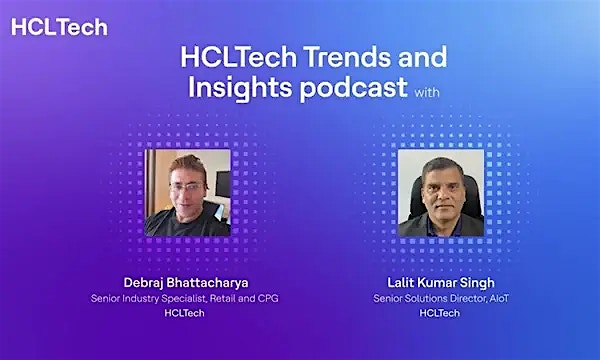Video
Section CTA

Playing now
The future of payments: Instant, transparent and borderless
Mick Fennell, Business Line Director, Payments at Temenos, explored what seamless cross-border experiences require, why AI must be embedded and how banks, regulators and partners can move in step

Kandasamy Ramanujam, SVP, Digital Business at HCLTech shares how GenAI and Agentic AI are shifting application management to proactive, experience-led and increasingly autonomous operations

Playing now
From projects to products: Reinventing IT models in life sciences and healthcare
Shrikanth Shetty, Chief Growth Officer and Global Head, Life Sciences and Healthcare at HCLTech, shares how shifting to a product-centric IT model is accelerating agility and AI adoption in healthcare

Prabhakar Appana, SVP and Global Head of AWS Business Unit Ecosystem at HCLTech, shares how AI is evolving from task automation to intelligent agents that behave like human collaborators

As Retail 5.0 takes shape, AI-driven operating models are becoming the backbone of execution — powering everything from predictive logistics to real-time customer engagement

Srinivas Lakkaraju, SVP at HCLTech and Henry Calvert, Head of Network at GSMA, explore how their collaboration is driving telecom innovation through the open gateway initiative
Podcast
Section CTA
Subscribe to the HCLTech Newsletter
for our latest news and insights
Primary button

















